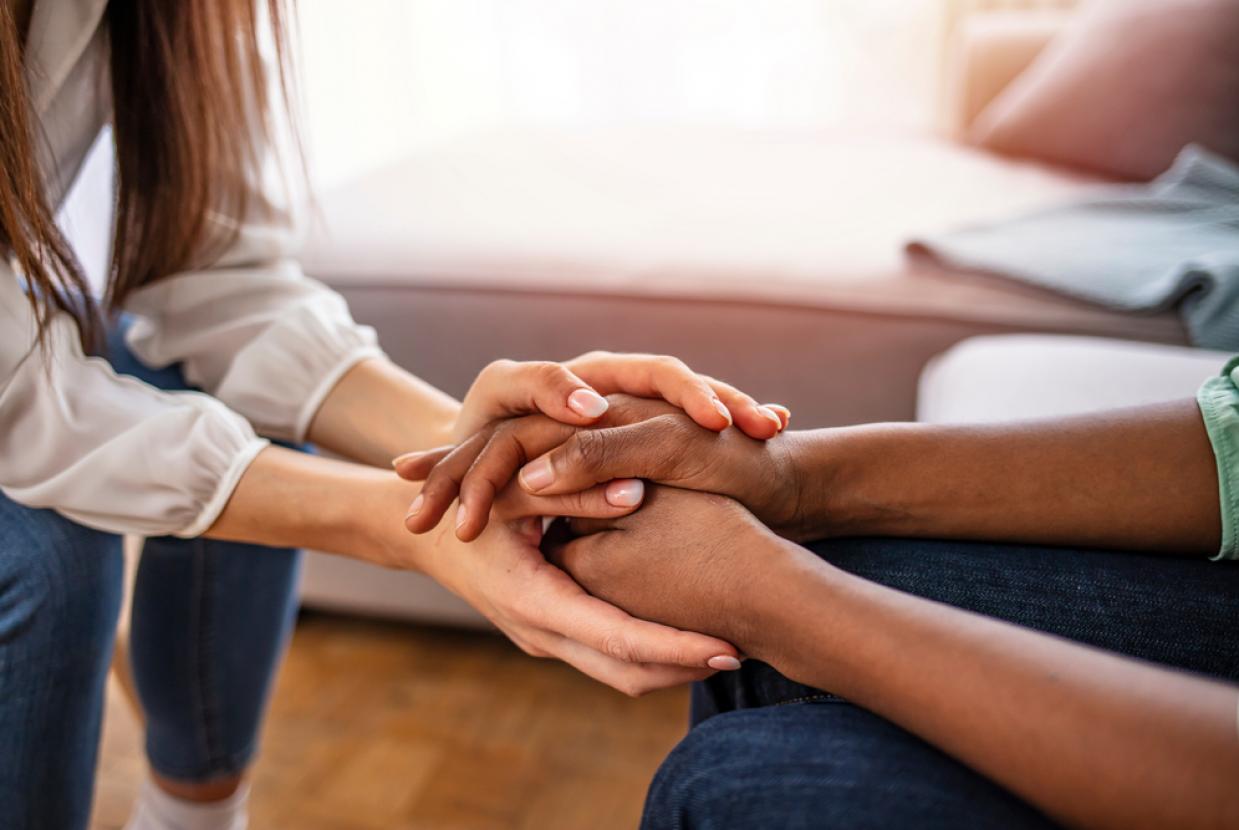Maintaining Healthy Relationships & Mental Wellbeing
Mental Health / RelationshipsRelationships, including the one you have with yourself, are vital to our mental wellbeing. People with healthy, positive and supportive relationships are more likely to be happier and healthier.
Creating and maintaining good connections with others can also help to combat loneliness and improve mental health issues, such as stress and anxiety.
Ways to build a healthy relationship with yourself
Let's start with you: the relationship with yourself is vital, and it’s an important connection to think about and look after. How we treat ourselves, our self-esteem, affects how well we look after ourselves and our ability to build good resilience. Luckily, there are lots of little things we can do that might improve self-esteem, including positive thinking.
Try positive thinking
Often our thoughts are automatic, and we do not notice them – but it can really help to tune into our thinking and check if it’s positive or negative.
If you find that your thoughts are negative or unhelpful, try challenging these and thinking more positively. It can really help build confidence.
It might not feel realistic to always think positively, so try finding neutral alternatives. For example, the negative thought, "I had lots to do and I‘ve done nothing. I'm useless", can be turned into a neutral or realistic one, like: "Not every day can be good, but that's OK because I can try again tomorrow."
Over time, having this more balanced view can help you to build a healthier and happier relationship with yourself.
Ways to build healthy relationships with others
We need to work to build good relationships and keep them that way. Key ingredients to healthy relationships include respecting and supporting others, and having open and honest conversations.
Being able to speak openly about the way you are feeling and, in turn, listening to your partner, friend or family member can strengthen relationships, reduce relationship anxiety, and help to protect your mental wellbeing.
Healthy ways to communicate in relationships
Try to be an "active listener", which means repeating back to the person what they’ve said to you, or asking for more details if it’s not clear. Active listening can help you to check you understand what someone is saying to you.
Making an effort to check in regularly can make it easier to manage challenges as they arise, rather than letting them build up. Perhaps set aside a regular time to talk, or write down how you feel in a message or letter if it feels difficult to say out loud.
Tips on managing stress and anxiety in relationships
Life's challenges can affect our relationships, as difficult emotions build up sometimes and we get irritable, snappy or withdrawn.
If you are facing a challenging time, being open and honest can help you and everyone around you feel supported.
If you know someone who is going through a tough time, it can be hard or upsetting for you too – so it's important for you to support them in ways that also protect your mental wellbeing.
Here are 3 little things you can do to make sure you're taking care of yourself in your relationships.
- Set boundaries - think about what you feel able to help with. Try to stick with this – whether it's listening or offering practical help like doing the shopping.
- Take time for yourself - find time to do something just for yourself. Try to focus on your own hobbies and interests.
- Talk to someone you trust - finding someone outside the relationship that you trust enough to confide in can really help.
Dealing with relationship conflicts
Disagreements are normal, but it can affect your mental wellbeing if an argument is not resolved. If it's difficult to talk through an issue calmly, take time out and talk again when everyone involved is feeling calmer
Questions to help manage conflict
Sometimes , we have strong feelings about something, think we know what someone else thinks, or let our past affect what is happening in the present . It can help to take a step back and ask yourself the following questions:
- What meaning have I given this situation?
- Is there a difference between the facts and my opinion of this situation?
- What advice would I give to somebody else in this position?
- Is there another way to look at the argument?
Working through these questions with those involved might help everyone to understand each other better and explore ways to say or do things differently.












































































































